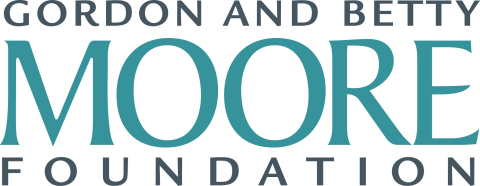PALO ALTO, Calif.--(BUSINESS WIRE)--Today, the Gordon and Betty Moore Foundation announced the 2023 cohort of Moore Inventor Fellows. The fellowship supports scientist-inventors who create new tools and technologies with a high potential to accelerate progress in the foundation’s areas of interest: scientific discovery, environmental conservation and patient care.
“The Moore Inventor Fellowship recognizes the power of innovation to solve problems and reimagine our world,” said Harvey V. Fineberg, M.D., Ph.D., president of the Gordon and Betty Moore Foundation.
While their backgrounds and fields of expert knowledge vary, the five fellows share a common curiosity about our world and a passion for transformative ideas. This year’s inventors are working toward turning off the on-switch for diseases, improving stress resilience in crops, developing flexible and energy-self-sustaining electronics, finding and removing toxic proteins associated with neurodegenerative diseases, and recovering critical metals from wastewater.
“We are excited to support this outstanding group of Moore Inventor Fellows from institutions across the United States,” said Adam Jones, Ph.D., Science program officer. “These awards will enable each fellow to take risks, advance their inventions, and gain valuable entrepreneurial experience.”
This year, the foundation received nearly 200 nominations, from which five fellows were selected. Each fellow receives a total of $825,000 over three years to drive their invention forward, which includes $50,000 per year from their home institution as a commitment to these outstanding individuals.
Launched in 2016 to celebrate the 50th anniversary of Moore’s Law, the revolutionary prediction that anticipated the exponential growth of computing power, the fellowship embraces the spirit of Gordon Moore’s passion for science and penchant for inventing. The foundation plans to allocate a total of nearly $34 million through 2026 to support fifty Moore Inventor Fellows – five fellows per year for ten years, beginning in 2016, and expects the fellows will enable breakthroughs that accelerate progress over the next fifty years.
Nominations for 2024 Moore Inventor Fellows are being solicited from eligible institutions until Tuesday November 14, 2023. Institutional representatives are also invited to join a virtual Q&A on October 12, 2023 from 10-11 am Pacific Time. To gain access to the application system, please complete the point of contact form by no later than November 13, 2023 ahead of the nomination submission deadline.
More information is available at http://www.moore.org/inventors.
2023 Moore Inventor Fellows
Steven Banik, Ph.D., Assistant Professor, Department of Chemistry and Sarafan ChEM-H, Stanford University (LinkedIn)
Dr. Banik’s biochemical technology has the potential to dramatically accelerate the development of medicines for difficult-to-treat disorders.
Jazz Dickinson, Ph.D., Assistant Professor, Cell and Developmental Biology, University of California, San Diego (LinkedIn)
Dr. Dickinson's chemical cocktail has the potential to provide plant-based solutions to reduce greenhouse gas emissions, sustain our supply of affordable food, and protect natural ecosystems.
Ximin He, Ph.D., Associate Professor, Materials Science and Engineering, University of California, Los Angeles (LinkedIn)
Dr. He’s electrolytes have the potential to transform electronics from being rigid to flexible and energy-self-sustaining.
Keren Lasker, Ph.D., Assistant Professor, Integrative Structural and Computational Biology, The Scripps Research Institute (LinkedIn)
Dr. Lasker’s disease therapeutics could lead to the development of new treatments and cures for neurodegenerative diseases.
Mercedes Taylor, Ph.D., Professor, Chemistry and Biochemistry, University of Maryland, College Park (LinkedIn)
Dr. Taylor’s materials have the potential to simultaneously purify and capture valuable metals from wastewater.




